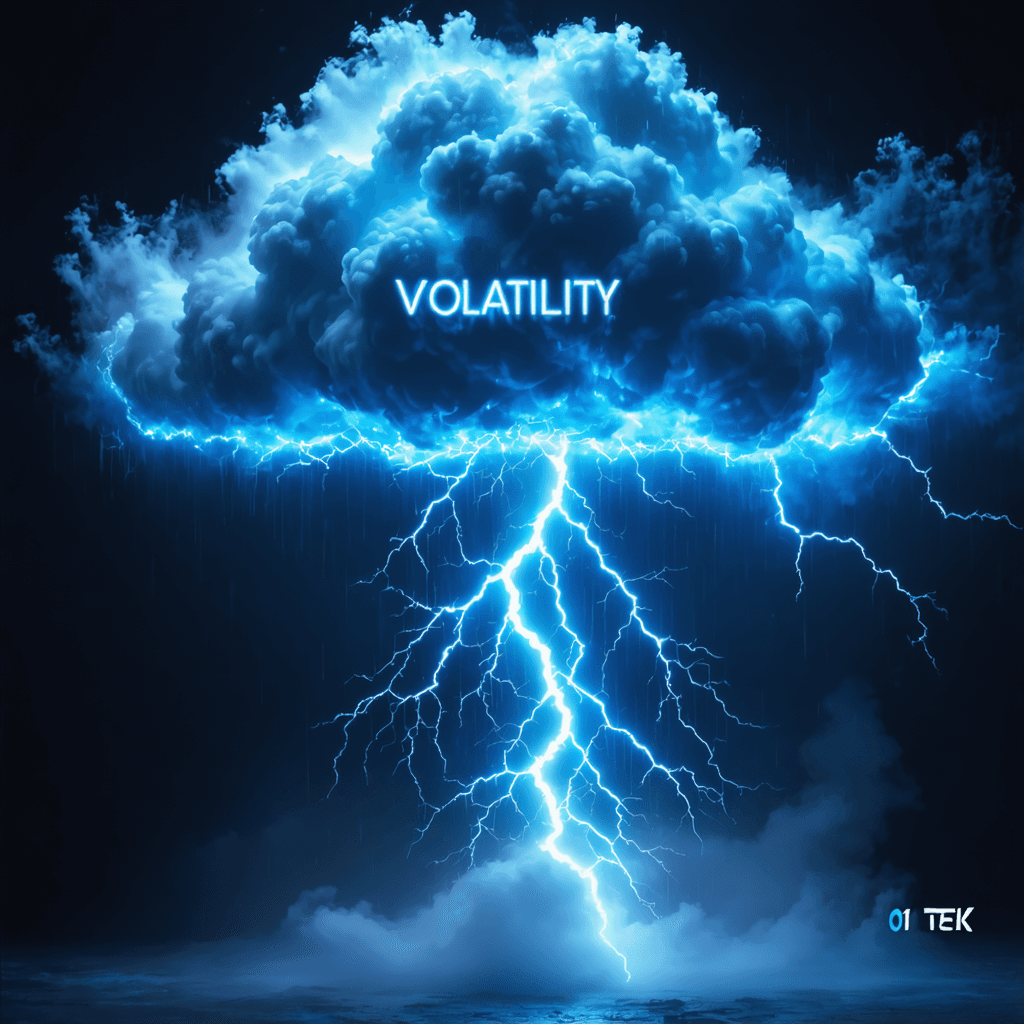AI Navigating the Storm: Volatility's Impact on Complex Systems
Volatility, that unpredictable force of nature, disrupts everything it touches. From financial markets to global pandemics, its chaotic dance leaves us scrambling to adapt. And in a world growing increasingly complex, understanding how to navigate volatility becomes not just desirable, but essential.
It's here that Artificial Intelligence (AI) steps onto the stage, offering a beacon of hope amidst the storm. Not as a magical solution, but as a powerful tool to analyze, predict, and mitigate the impact of volatility on intricate systems.
Understanding the Beast: Volatility in the Modern World
The modern world thrives on interconnectedness. Supply chains span continents, financial markets operate 24/7, and information travels at the speed of light. But this interconnectedness, while beneficial, also breeds vulnerability. Like a line of dominoes, a disruption in one area can cascade through the entire system, amplifying the impact of volatility.
Consider the recent global chip shortage. Triggered by a confluence of factors like the pandemic and geopolitical tensions, it wreaked havoc on industries from automotive to electronics, highlighting how a seemingly localized disruption can ripple outwards, impacting global systems in unexpected ways.
AI: Not a Crystal Ball, But a Powerful Lens
Let's be clear – AI cannot predict the future with perfect accuracy. Volatility, by its very nature, defies easy prediction. However, AI excels at something even more valuable: pattern recognition within massive datasets. By analyzing historical data, identifying trends, and running simulations, AI can:
- Anticipate potential disruptions: By analyzing historical data and identifying patterns, AI can flag early warning signs of potential volatility, giving organizations precious time to prepare and adapt.
- Model potential outcomes: AI can simulate the impact of different scenarios on complex systems. Want to understand how a sudden price spike in a key commodity might affect your supply chain? AI can help model those scenarios, allowing for more informed decision-making.
- Optimize resource allocation: In times of uncertainty, efficient resource allocation is critical. AI can help businesses optimize inventory, logistics, and even workforce allocation based on real-time data and predictive analytics.
Real-World Applications: Where AI is Already Making a Difference
The impact of AI in managing volatility is already being felt across various sectors:
- Finance: AI-powered algorithms analyze market sentiment, news feeds, and economic indicators to identify potential market fluctuations, helping investors make more informed decisions.
- Supply Chain Management: AI predicts demand fluctuations, optimizes shipping routes, and even automates warehouse operations, creating more resilient and responsive supply chains.
- Healthcare: AI analyzes patient data, tracks the spread of diseases, and even assists in drug discovery, leading to more proactive and effective healthcare systems.
Practical Steps: Integrating AI into Your Volatility Management Strategy
- Start with Data: The foundation of any successful AI implementation is high-quality, relevant data. Begin by identifying the key data points that influence your systems and ensure their accuracy and accessibility.
- Focus on Specific Use Cases: Don't try to boil the ocean. Start by identifying specific areas where AI can address your most pressing volatility challenges.
- Embrace Collaboration: Bridging the gap between AI experts and domain specialists within your organization is crucial. Foster a culture of collaboration to ensure AI solutions are effectively tailored to your unique needs.
Navigating the Storm, Together
Volatility is an inherent part of our increasingly complex world. But with the power of AI, we can transform from passive bystanders to active navigators. By embracing data-driven insights, fostering collaboration, and focusing on continuous learning, we can not only weather the storm but emerge stronger and more resilient on the other side.
Ready to dive deeper into the world of AI and its impact on managing complex systems? Explore a wide range of courses and resources on 01TEK, your gateway to the future of learning.
You don’t learn to walk by following rules. You learn by doing and falling over.
Richard Branson, founder of Virgin Group



